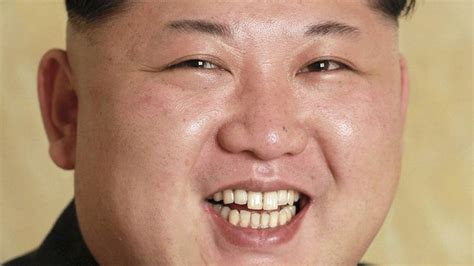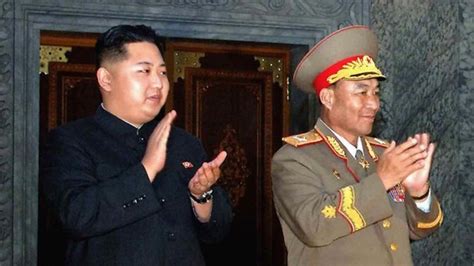
North Korea Reportedly Executes Finance Minister Over Policy Failure
Reports have emerged alleging that North Korea executed its finance minister earlier this year after holding him responsible for perceived failures in economic policy. While concrete verification of such events within the notoriously opaque regime is exceedingly difficult, the news underscores the immense pressure placed on officials to deliver tangible economic improvements and the ruthlessness employed to maintain control.
According to sources, the finance minister, whose name has not been consistently reported, was held accountable for mismanaging financial resources and failing to implement policies aimed at bolstering the national economy. These purported failures reportedly included issues related to currency exchange rates and the country's struggling trade sector. In Kim Jong-un's North Korea, such shortcomings are often viewed as acts of disloyalty and sabotage, punishable by the most severe measures.
The reported execution, if confirmed, aligns with a pattern of high-profile purges and executions of senior officials that have characterized Kim Jong-un's rule. This practice serves as a stark warning to those in positions of power, reinforcing the leader's authority and discouraging dissent or any perceived deviation from the party line. The pervasive fear instilled by these actions is a crucial tool for maintaining control in a system where information is tightly controlled and individual liberties are severely restricted.
North Korea's economy has long been plagued by international sanctions, self-imposed isolation, and mismanagement. The COVID-19 pandemic further exacerbated these challenges, leading to border closures, reduced trade, and increased food shortages. The pressure on officials to find solutions to these economic woes is immense, and the reported execution of the finance minister serves as a grim reminder of the consequences of failing to meet the regime's expectations.
The reports of the execution highlight the inherent instability and unpredictability of the North Korean regime. While definitive confirmation remains elusive, the allegations underscore the brutal realities of power within the country and the immense challenges faced by its leadership in navigating its complex economic and political landscape. The situation serves as a stark reminder of the importance of continued scrutiny and monitoring of events within North Korea, and the need to address the human rights abuses that continue to occur under Kim Jong-un's rule.
 0 x 0 north korean defense minister executed antiaircraft fire south from www.wsj.com
0 x 0 north korean defense minister executed antiaircraft fire south from www.wsj.com
 0 x 0 north korea executed deputy premier seoul reports york from www.nytimes.com
0 x 0 north korea executed deputy premier seoul reports york from www.nytimes.com
 850×478 reports north korea publicly executes defense chief cnn from www.cnn.com
850×478 reports north korea publicly executes defense chief cnn from www.cnn.com
 1280×853 south korean president names finance minister wsj from www.wsj.com
1280×853 south korean president names finance minister wsj from www.wsj.com
 1024×571 lawmaker south koreas spy agency north korea executed from www.foxnews.com
1024×571 lawmaker south koreas spy agency north korea executed from www.foxnews.com
 959×639 north korean vice premier executed south wsj from www.wsj.com
959×639 north korean vice premier executed south wsj from www.wsj.com
 1600×899 north korea executed purged top nuclear negotiators south korean from www.nytimes.com
1600×899 north korea executed purged top nuclear negotiators south korean from www.nytimes.com
 0 x 0 north korea publicly executes defense minister cnn video from www.cnn.com
0 x 0 north korea publicly executes defense minister cnn video from www.cnn.com
 1050×549 north korean diplomat defects south talks execution from www.nytimes.com
1050×549 north korean diplomat defects south talks execution from www.nytimes.com
 800×450 checking reports north korea executed top official trump from edition.cnn.com
800×450 checking reports north korea executed top official trump from edition.cnn.com
 2048×1362 north korea executed top officials south korean agency from www.nytimes.com
2048×1362 north korea executed top officials south korean agency from www.nytimes.com
 650×442 korea execute finance chief york times from www.nytimes.com
650×442 korea execute finance chief york times from www.nytimes.com
 640×360 north korea defense chief executed snoozing meeting fox news video from www.foxnews.com
640×360 north korea defense chief executed snoozing meeting fox news video from www.foxnews.com
 749×499 north korea wife executed jang retains prominence wsj from www.wsj.com
749×499 north korea wife executed jang retains prominence wsj from www.wsj.com
 976×549 north korea executed top minister south korea bbc news from www.bbc.com
976×549 north korea executed top minister south korea bbc news from www.bbc.com
 1920×1080 south korea finance minister cautiously optimistic trade from www.cnbc.com
1920×1080 south korea finance minister cautiously optimistic trade from www.cnbc.com
 800×536 south korea finance minister vows measures stabilise market from finance.yahoo.com
800×536 south korea finance minister vows measures stabilise market from finance.yahoo.com
 1500×919 north korea execute orchestra musicians wqxr editorial wqxr from www.wqxr.org
1500×919 north korea execute orchestra musicians wqxr editorial wqxr from www.wqxr.org
 900×600 north korea publicly executes defense minister korean from www.csmonitor.com
900×600 north korea publicly executes defense minister korean from www.csmonitor.com
 800×533 south korea finance minister sees inflation easing april from www.shorenewsnetwork.com
800×533 south korea finance minister sees inflation easing april from www.shorenewsnetwork.com
 1200×675 north korea executes defence chief sleeping meeting hindu from www.thehindu.com
1200×675 north korea executes defence chief sleeping meeting hindu from www.thehindu.com
 1200×800 skorea finance minister meets china counterparts reuters from www.reuters.com
1200×800 skorea finance minister meets china counterparts reuters from www.reuters.com
 720×443 south korea respond market volatility heightens excessively from www.reuters.com
720×443 south korea respond market volatility heightens excessively from www.reuters.com
 1200×675 north korea executes defense minister from www.voanews.com
1200×675 north korea executes defense minister from www.voanews.com
 1280×854 south korea finance minister sees extra budget bloomberg from www.bloomberg.com
1280×854 south korea finance minister sees extra budget bloomberg from www.bloomberg.com
 759×422 south korea names pm finance minister political scandal from indianexpress.com
759×422 south korea names pm finance minister political scandal from indianexpress.com
 800×530 south korea finance minister change stance act forex from www.metro.us
800×530 south korea finance minister change stance act forex from www.metro.us
 636×382 north korea officials executed discussing stagnant economy from www.dailymail.co.uk
636×382 north korea officials executed discussing stagnant economy from www.dailymail.co.uk
 670×377 north korean defence minister executed anti from www.sickchirpse.com
670×377 north korean defence minister executed anti from www.sickchirpse.com
 1600×900 south korean minister resigns tension north from www.rte.ie
1600×900 south korean minister resigns tension north from www.rte.ie
 1920×1921 north korea executing high level officials anti aircraft from www.vox.com
1920×1921 north korea executing high level officials anti aircraft from www.vox.com
 1200×812 south korea step efforts markets stable minister from www.reuters.com
1200×812 south korea step efforts markets stable minister from www.reuters.com